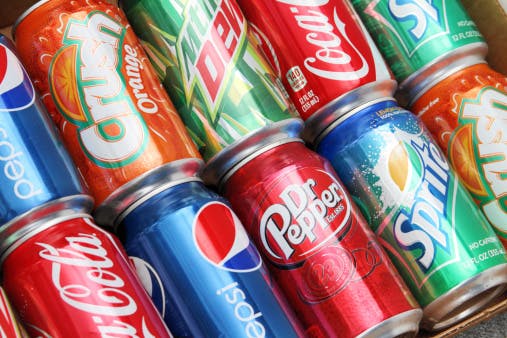While Pepsi revenue pops, Sprite and Dr Pepper are bubbling up in the soda standings
Coca-Cola is still king, even as it approaches a presidentially endorsed recipe change.
After posting expectation-beating results on Thursday, snacks and beverage giant PepsiCo saw its stock jump more than 6% — suggesting that, following a slew of disappointing sales results in North America, investors might now think that Pepsi is OK.
While cost cutting and a focus on affordable pricing helped the company bring in more than $22 billion in revenue in the second quarter, a bright spot for Pepsi was its soda division, citing the double-digit volume growth of Pepsi Zero Sugar and the acquisition of prebiotic soda brand Poppi.
Soda, so good
It’s not just Pepsi; it seems that soft drinks more broadly are in the midst of a comeback right now.
Soda consumption was reported to be declining in the mid-2010s, hitting a 30-year low in 2015, per industry tracker Beverage Digest. Now, though, it looks like Americans are falling back in love with the drinks: total soft drink sales are growing again, and Coca-Cola and Keurig Dr Pepper, the world’s biggest soda brands besides Pepsi, have also seen soda case sales rise in the past year.
Even as Pepsi enjoys a revenue rebound, the soaring popularity of other household name beverages are undercutting its market dominance. Last year, ambiguously flavored fan favorite Dr Pepper overtook Pepsi as the second-highest-selling soft drink by case sales, securing an 8.7% market share in the US, Beverage Digest found.
Not only that, Sprite, Coca-Cola’s citrus-flavored soft drink, just pipped Pepsi to third position with an 8.03% share of the market, compared with Pepsi’s 7.97%, putting the drink in fourth place for the first time in the tracker’s history.
It’s the real thing
Still, there’s no match for Coke, which further cemented its place as the most popular soft drink, taking a 19.2% share of the US market.
However, there’s a chance that the classic soda might become less classic in the future (or more so, if you consider any time before 1984), after President Trump announced Wednesday that American Coke recipe will switch to using “REAL Cane Sugar.” While Coca-Cola has yet to confirm the news, it’s still come as a blow to corn syrup makers like Archer-Daniels-Midland.
